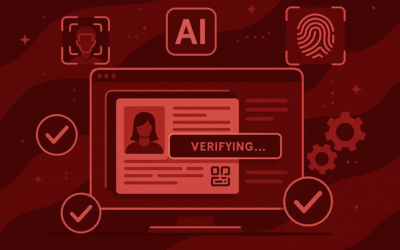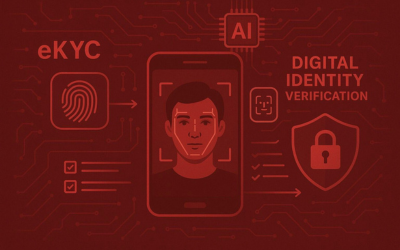DPDP Act: Top Business Takeaways for 2025
Fintech
May 14, 2025

The Digital Personal Data Protection (DPDP) Act marks a significant shift in how organizations handle personal data in India. With data becoming the new currency in the digital world, this legislation empowers individuals with more control over their personal data and imposes new compliance responsibilities on businesses and data fiduciaries.
This blog
breaks down the DPDP Act into digestible insights, highlighting key
obligations, rights, penalties, and implications for enterprises operating in
the Indian digital space.
Table of Contents
- What is the DPDP Act?
- Scope and Applicability
- Key Definitions
- Core Principles of the Act
- Rights of Data Principals
- Obligations of Data Fiduciaries
- Cross-Border Data Transfer Rules
- Consent Management Framework
- Role of the Data Protection Board
- Penalties and Non-Compliance
- Impact on Startups, SMEs, and
Enterprises
- How to Prepare for DPDP Compliance
- FAQs
What is the DPDP Act?
- The Digital Personal Data
Protection (DPDP) Act, 2023 is India’s landmark legislation regulating
how personal data is collected, processed, stored, and transferred.
- The law aims to protect
individuals’ rights while enabling innovation and ease of doing business
in the digital economy. It complements other frameworks like AI-powered identity verification that ensure personal data is
validated securely.
- The Act was notified in August 2023
and is expected to come into effect in phases during 2024–2025.
Scope and Applicability
- Applies to all entities
(government or private) that process digital personal data in India.
- Covers both Indian and foreign
organizations if the data being processed pertains to individuals
within India.
- Includes data collected online and
data collected offline but digitized later - especially relevant in digital eKYC customer verification processes.
Key Definitions
- Data Principal: The individual whose data is
being processed.
- Data Fiduciary: The entity that determines the
purpose and means of data processing.
- Consent Manager: An independent body registered
with the Data Protection Board to manage user consent, crucial in easy identity verification
frameworks.
- Significant Data Fiduciary (SDF): Fiduciaries dealing with
large-scale data processing, subject to additional obligations.
Core Principles of the Act
- Lawful Processing: Data must be collected with
consent or legitimate use grounds. For example, KYC operations rely on lawful and
structured data intake methods.
- Purpose Limitation: Data should only be used for the
specific purpose it was collected.
- Data Minimization: Only necessary data should be
collected, a principle often implemented through AI OCR verification tools that extract only relevant
fields.
- Storage Limitation: Data must not be retained beyond
necessary duration.
- Accountability: Fiduciaries must implement
security safeguards and redress mechanisms, particularly important in fraud detection during financial
transactions.
Rights of Data Principals
- Right to Access: Individuals can request access to
their personal data.
- Right to Correction and Erasure: Inaccurate or outdated data can
be corrected or deleted.
- Right to Consent Withdrawal: Consent can be withdrawn at any
time.
- Right to Grievance Redressal: Principals can file complaints
against misuse.
- Right to Nominate: Nomination rights allow data
principals to appoint someone in the event of incapacity or death, adding
a layer of safety that is also seen in KYC/KYB verification for businesses.
Obligations of Data Fiduciaries
- Obtain clear, informed, and
specific consent before processing data.
- Implement technical and
organizational measures for data protection.
- Ensure transparency in data
usage and provide accessible privacy notices.
- Notify data breaches
promptly to the Data Protection Board and affected individuals.
- Comply with additional
obligations if classified as a Significant Data Fiduciary (e.g., risk
assessments, audits, appointing a DPO) - a concept echoed in
enterprise-level compliance tools like SprintVerify's advanced KYC modules.
Cross-Border Data Transfer Rules
- The Act permits cross-border
transfers unless restricted by the government through official
notification.
- Government may create a negative
list of countries where data cannot be transferred.
- No data localization requirement as
in previous drafts, making international integrations easier for tools
like Candy, which streamline onboarding
across geographies.
Consent Management Framework
- Consent must be free, informed,
specific, unambiguous, and given through a clear affirmative action.
- Use of Consent Managers to
help individuals manage and track their consents, similar to mechanisms
integrated within easy digital identity workflows.
- Consent requests should be in
plain language, with options for withdrawal.
Role of the Data Protection Board
- The Data Protection Board of
India will be the adjudicatory body for privacy-related disputes.
- Functions include investigations,
grievance redressal, issuing penalties, and guiding compliance.
- It operates independently but is appointed
by the Central Government, raising concerns over autonomy.
Penalties and Non-Compliance
- Non-compliance can attract fines up
to INR 250 crore (~$30 million) per violation.
- Some examples of penalties include:
- INR 200 crore for failing to prevent
data breaches.
- INR 150 crore for violating
children's data provisions.
- INR 50 crore for failing to honor
data principal rights.
- Repeated violations may lead to
increased scrutiny or operational restrictions. Strong compliance tools
such as AI OCR and identity verification
systems help
businesses stay on the right side of the law.
Impact on Startups, SMEs, and Enterprises
- Startups and MSMEs may face challenges due to
compliance costs.
- Enterprises and MNCs must overhaul their data
processing practices and rework contracts, especially for cross-border
operations.
- High-risk sectors like fintech,
healthtech, and edtech are most affected, particularly where identity fraud detection is mission-critical.
How to Prepare for DPDP Compliance
- Data Audit: Identify all personal data
touchpoints within your systems.
- Policy Update: Update privacy policies and terms
of service to reflect DPDP provisions.
- Consent Infrastructure: Implement or integrate with
consent management tools.
- Training: Conduct awareness sessions for
employees and data handlers.
- Vendor Assessment: Evaluate third-party processors
for compliance readiness.
- Incident Response: Establish clear processes for
breach detection and notification - and use tools like SprintVerify’s KYC solutions to ensure your verification
process is bulletproof.






